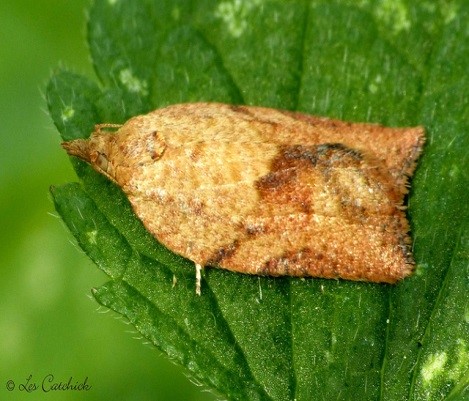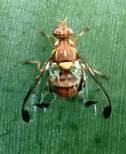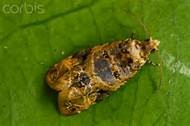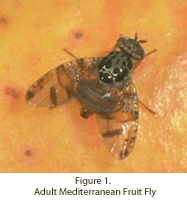Pest Detection & Prevention
Pest Detection
The Tehama County Department of Agriculture protects our local agricultural industry and environment from invasion of exotic pests by maintaining an extensive Pest Detection Program as a first line of defense. Despite rigorous regulations and best practices, non-native insects regularly make their way into California. Exotic pests may flourish in new environments especially if imported without their natural enemies. We operate under the belief that it is more cost effective and better for native plants and animals to keep exotic pests out of Tehama County than to attempt to control or eradicate them after they are introduced.

Through early detection this program is protecting more than agriculture. The environment is protected by limiting the need for more pesticide applications. The quality of produce is higher when exotic pests are detected early and prevented from becoming established as common pests. Consumers are protected from rising food costs as production expenses are less.

Incoming commercial and private shipments of agricultural products and plant material are inspected for compliance with quarantine regulations. Investigators routinely inspect material coming into local nurseries, aquatic plant stores and specialty markets in the hopes of preventing exotic pests from escaping into the environment.

Some of our duties include:
- Inspecting incoming plant material from quarantined areas for pests and diseases at nurseries and growing grounds.
- Inspecting outdoor household articles, such as lawn furniture, from Gypsy Moth infested areas.
- Periodic inspections of specialty markets for prohibited items, and pet stores for exotic species.
We use a variety of insect traps placed throughout the county. These traps are designed to attract specific insects and are positioned in or near food sources, such as Crape Myrtle for Glassy-winged Sharpshooter, ripe fruit trees for Mediterranean fruit fly, or vegetable gardens for Melon Fly.

The list of exotic insects we trap for includes:
- Glassy-Winged Sharpshooter
- Gypsy Moth
- Japanese Beetle
- Mediterranean Fruit Fly (Medfly)
- Melon Fruit Fly
- European Grapevine Moth
- Oriental Fruit Fly
- Light Brown Apple Moth
You can help by volunteering your yard or garden as a host site for our trapping program. If you have accessible fruit trees or a vegetable garden, we would greatly appreciate your cooperation with our efforts. Traps remain at the host site for about 6 to 12 weeks, and are serviced every other week. If you would like to find out more, please call us at (530) 527-4504.